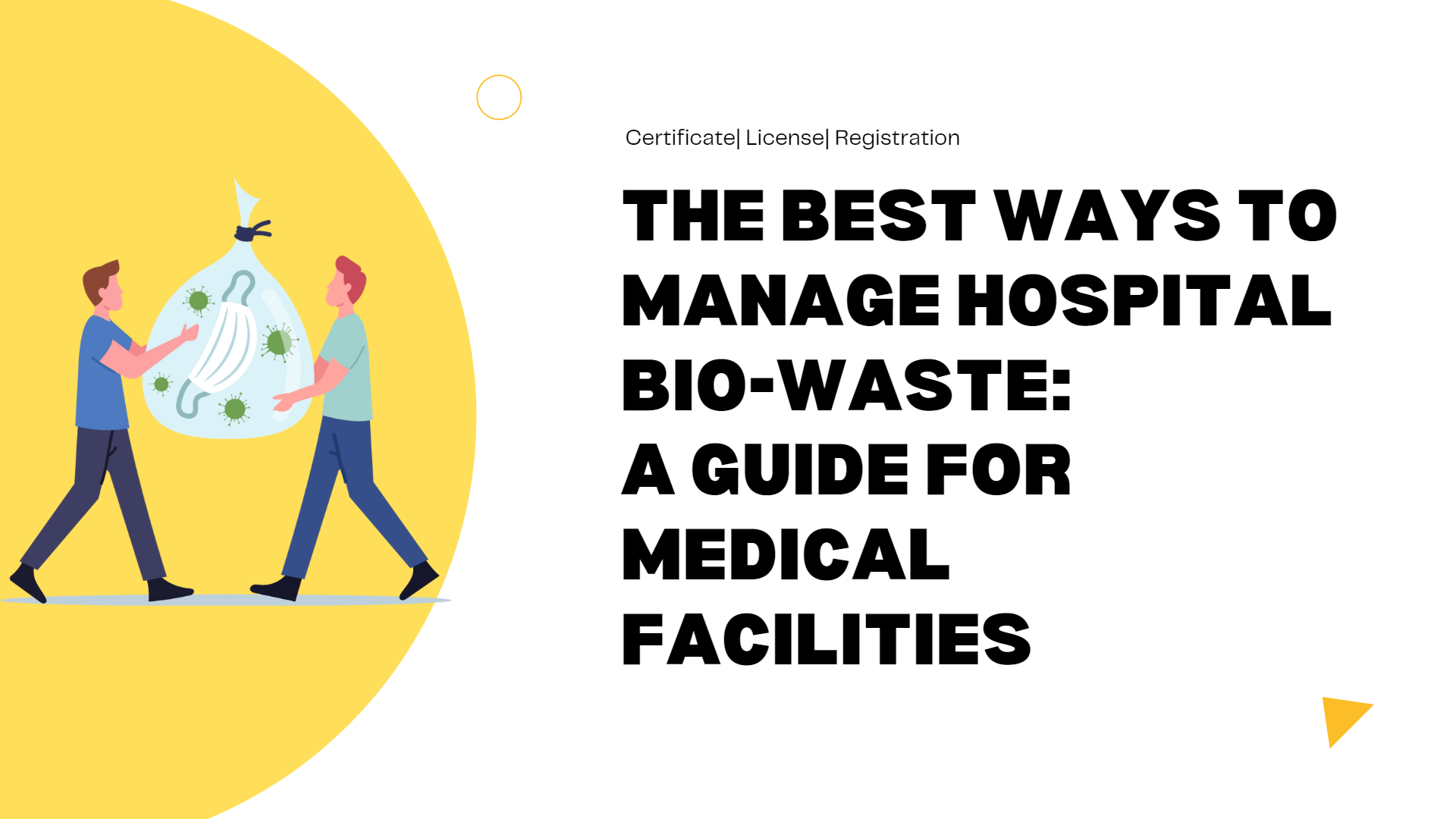Medical waste can range from all kinds of waste material collected from the healthcare facilities, such as syringes, needles, medical sponges, surgical gloves, catheters, X-ray tubes, catheters, prosthetic devices, and more. The most common problems related to medical waste include a lack of awareness about the health risks associated with it, insufficient training in proper waste management, a lack of waste management and disposal systems, insufficient financial and human resources, and Many countries either do not have or do not implement appropriate regulations of Hospital Bio-Waste regulations.
Why You Need to Manage Hospital Bio-Waste
There are a number of reasons why hospitals need to create a comprehensive waste management plan. Proper waste management ensures that hospital wastes are either disposed of appropriately or contained to a minimum. The earlier the hospital creates a waste management plan, the more prepared it will be for a major emergency should such an event occur. Not only will hospital waste management help reduce the risks associated with biohazardous materials, but it will also ensure the hospital environment is healthy for everyone. Moreover, it is important to bear in mind that Hospital Bio-Waste poses more than the threat of releasing harmful bacteria, but also can have a devastating impact on the environment.
Managing Medical Waste Properly
Maintaining bio-medical waste in accordance with set guidelines helps hospitals and medical facilities reduce the threat of exposure to pathogens. The best way to manage hospital bio-waste is to establish appropriate practices for the management of medical waste and for food-related waste. Under the medical waste program, there are several basic procedures that have to follow.
The following are some suggestions for reducing the risk of disease transmission through medical waste:
- Identify appropriate waste management systems Medical waste management systems need to be efficient and effective.
- Treatment
- Within the hospital, specific locations for temporary waste storage should be provided.
- Biomedical Proper waste disposal
- Proper Treatment of hazardous components in healthcare waste,
The Importance Awareness for Hospital Bio-Waste
As a rule, facilities and health care workers face difficulty disposing of biowaste as they do not know how to properly handle, segregate and dispose of it. The reluctance to manage the biowaste, even in small amounts, can eventually result in a contaminated environment. Failing to dispose of biowaste correctly has been associated with a number of health issues, such as food poisoning, respiratory infections, and a variety of other health issues. The steps that are used to manage bio-waste need to implement at all times in hospitals to ensure that medical waste is properly disposed of in a safe manner. A best practice is to separate the waste generated by the hospital, as well as the waste generated by the treatment center.
How to Train Employees
Training may be provided as part of the program developed by the institution, or be provided as a separate, internal, training course. Some of the key elements of any training program include developing a program for waste collection, an understanding of health risks and how to safely handle waste, and instruction in safe practices in food processing.
What’s the Solution?
The complexity of the topic makes it difficult for most people to learn how to deal with hospital bio-waste management. The following guide is designed to help you deal with hospital waste responsibly: The National Institutes of Health is planning to include incineration in the list of acceptable disposal methods. It is important for you to be knowledgeable about all the bio-waste disposal methods, preferably in advance of disposing of any bio-waste. Each disposal method has its own drawbacks and advantages, and you should be knowledgeable about each one before deciding which is the right one for you.
Conclusion
Medical waste is a crucial element of any hospital. Some of the health care facilities around the globe provide a high level of care, while others have reported patient and staff deaths because of medical errors related to medical waste. Thus, in order to avoid such fatalities, it is important for the health care facility to ensure the proper waste management and disposal, and also keep the patients, staff, and visitors safe from diseases and bodily harm.
















